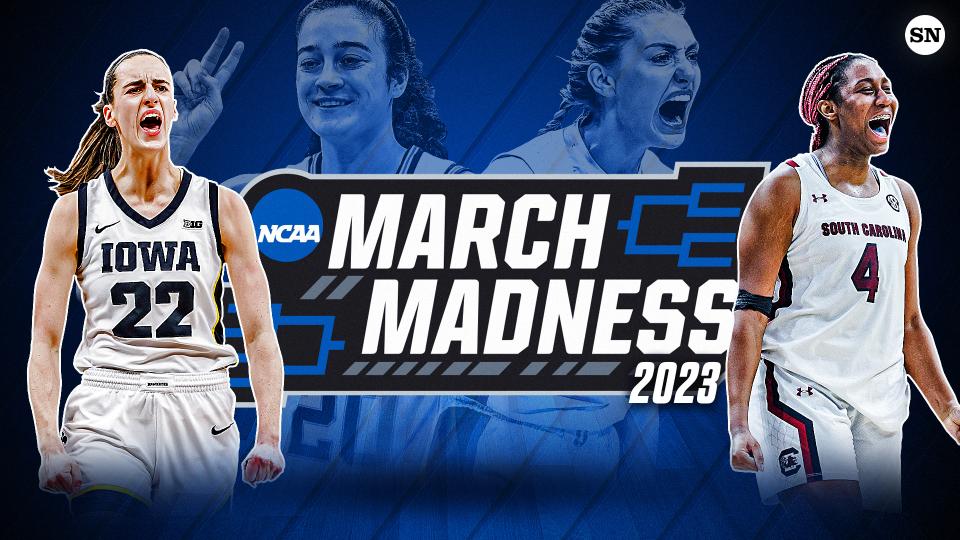While March and its ensuing “madness” may be over after UConn triumphed for the men and the women’s LSU team beat out Iowa State, sports fans are still looking at some of the standouts from the year, namely Caitlin Clark.
The beloved guard for Iowa State racketed up scores that the tournament rarely sees for women. In their final four-game against South Carolina, Clark scored a whopping 41 points (her second 40-point game in a row) and gave her teammates eight assists.
According to USA Today, during that game, Clark broke the single-tournament record for the most 3-pointers made and most points scored in tournament history.
“The super-shooter from Des Moines has become a household name after the last three weeks after logo 3s that made jaws drop, and transition passes that made defenders’ heads spin,” USA Today said.
Her presence in the game drew in interest and numbers for the league, which has helped ratings in the infamously unwatched sport.
“The possibility of an explosive game from her is at least partially why more than 6 million people tuned into Friday’s semifinal against South Carolina,” USA Today said.
According to Forbes, this is a massive increase from the prior year’s ratings.
“Throughout this year’s Women’s March Madness, ESPN set viewing records. For example, the two Final Four contests averaged 4.5 million viewers, a 65% increase from last year,” Forbes said.
This high push for viewership continued with big names like Clark and LSU’s popular Angel Reese.
“The gritty battle for the women’s college basketball championship on Sunday between Louisiana State and Iowa drew an average of 9.9 million viewers, making it the most viewed N.C.A.A. women’s basketball final in television history,” The New York Times said.
LSU dominated the game with a 102-85 win over Iowa State. Following their victory, the Tigers praised Clark and Iowa State.
“LSU’s Alexis Morris, who harassed Clark into a rough shooting game Sunday afternoon, said Clark is ‘changing the game right now.’ Tigers coach Kim Mulkey called her ‘a generational talent,’” USA Today said.
For Clark, the loss was a bitter pill to swallow, but she knows the game she played and the legacy she is leaving.
“I want my legacy to be the impact I have on young kids and the people of Iowa,” Clark said after the title game loss, according to USA Today. “I was that young girl (once). All you have to do is dream, and you can be in moments like this.”
Now, the attention is turning to the future for Clark, with many wondering about her impending draft to the WNBA. However, this will not be the case anytime soon for the 21-year-old. With many differences between the NBA and WNBA, one large one is the requirements for draft eligibility.
“The NBA has a 19-year-old age limit rule that requires players entering the draft to be one year removed from high school,” CBS said. “Meanwhile, the WNBA official rules require players to be 22 years old the year of the draft. The other option, according to the rules, is to have already graduated from a four-year college or university or graduate during the three-month period following the draft.”
This has turned into frustration and confusion among fans– including basketball legend LeBron James in a tweet– about why the rules are different for women.
According to The Athletic, there are many reasons why the leagues are different in incentivizing players to leave early. The league has limited roster spots, with only around 144 open each season.
“For a player like Clark or Boston, the type of players teams would draft and build around. But for even exceptionally talented college players, WNBA longevity is a factor,” The Athletic said.
The players who do join get paid significantly less than their male counterparts.
“The base rookie salary in the WNBA is around $72,000 for the top four picks. The top four NBA picks’ salaries in Year 1 are between about $6.2 million and $9.6 million,” The Athletic said.
For other players, their fanbase typically remains at their college level, but Clark may be able to bridge that gap. However, in doing so, she would pull attraction from the just blossoming field of women’s college basketball.
Moving to the WNBA is not an option for the Iowa guard because while the age requirement could be revisited in the future, it would not be until 2025.


